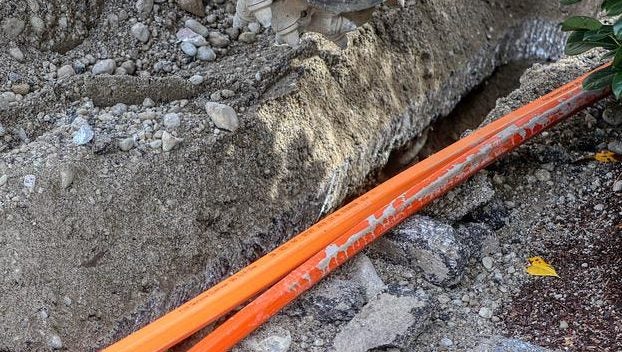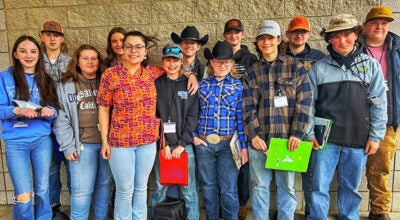Where does Kinex progress stand? A look at broadband deadline
Published 12:51 am Friday, May 10, 2024
|
Getting your Trinity Audio player ready...
|
When will the Kinex high-speed internet project be finished? That’s a question which has been asked of Herald staff more than once over the last few months. And Kinex Telecom President James Garrett has an answer. It’ll be finished with a two-year timespan.
Garrett says his company’s efforts to provide the area broadband internet are on schedule as the second full year of work approaches to lay roughly 1,300 miles of fiber optics cable in Prince Edward County and the surrounding region. As it stands, the company is in the latter half of Phase II of the project, Garrett added. It has been broken up into four phases for planning and logistics purposes.
To date, he said that workers have built just short of 500 miles of fiber optic cable so far. With the help from new additions to the project team, he expects everything to be finished within 17 to 20 months.
Kinex employees began laying down fiber for the project in September 2022. During Phase I, Kinex built almost 290 miles of fiber in Prince Edward and Lunenburg counties. In the second phase, work continued while building a backbone loop through all three counties while also building the lateral lines to serve additional clients.
“At this point, we are beginning to accelerate the project and we recently brought in an investment team to help us fast track the project,” Garrett said. “We now expect to finish the project in three years, which will end in late summer 2025.”
Some other players
While Kinex is contracted for the majority of the region’s broadband expansion, there are other players involved as well. Firefly Fiber Broadband is contracted to build fiber in the northern portion of Cumberland County while Kinex works on the southern part. Also, though Kinex has some fiber laid in Buckingham, Firefly was awarded grant money to build for that area as well. Kinex has built fiber lines in Charlotte County as well, however, RiverStreet Networks ultimately received federal funding for this scope.
As we’ve reported previously, one of the issues slowing down construction has been utility lines. That is, work crews tasked with marking underground cables so they wouldn’t be damaged weren’t able to keep up with the schedule. The marking company expanded its workforce, but still couldn’t keep up, Garrett said, so a new company has since stepped in.
Another potential problem involves competition for materials.
How will BEAD impact Kinex?
Signed into law by President Joe Biden in 2021, the Infrastructure Investment and Jobs Act has dedicated more than $1 trillion toward transportation and infrastructure development, funding programs like BEAD. That is the Broadband, Equity, Access and Deployment Program (BEAD). A total of $42 billion in federal funding for high-speed internet infrastructure is being released this year.
But BEAD is no surprise, and Garrett says Kinex has been preparing.
“We ordered materials way in advance, and have the next year’s fiber on-hand,” he said. “We have recurring loads of innerduct (the tubes that would house the cable underground) and vaults scheduled.”
While nationally and within the Commonwealth, labor and materials may remain short, Kinex should be able to handle it, with how much has been pre-ordered, the company founder said.
“We expect (BEAD) to put a high demand on materials, equipment, and labor in every state,” Garrett explained. “But I think we will be able to work through those issues.”





